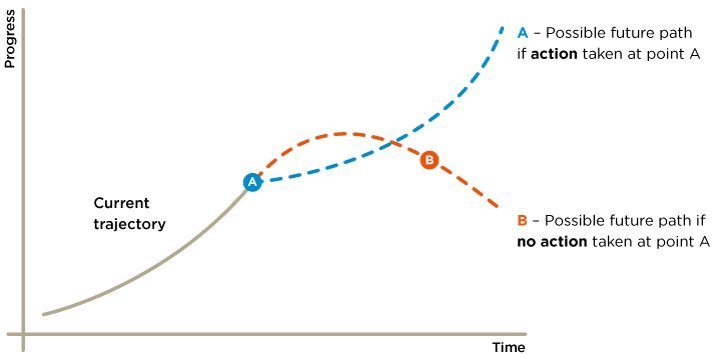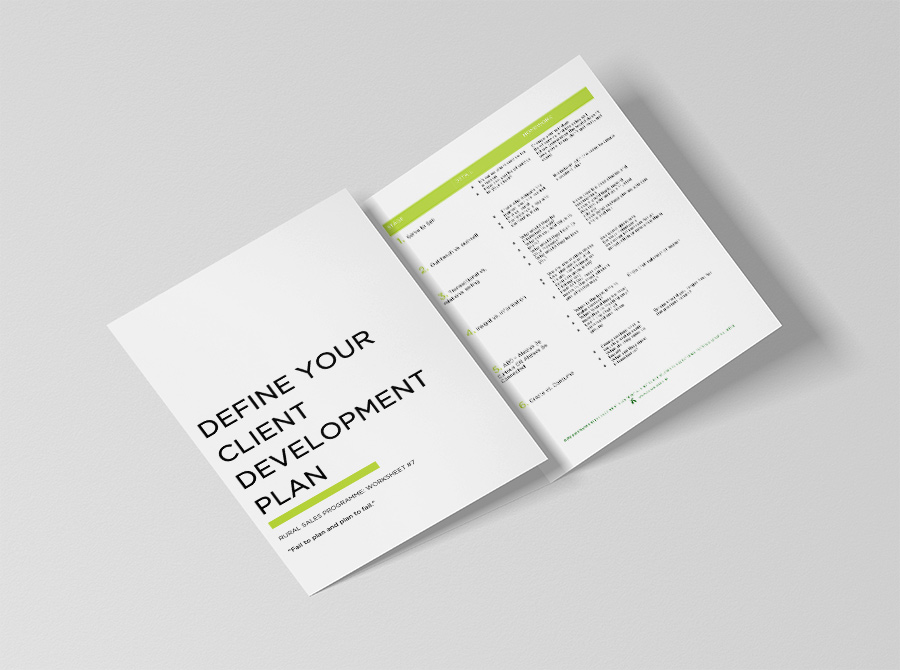Why You Should Always Attack A Lead And Never Defend One
It was 1999 when I moved to New Zealand. I was watching the All Blacks losing tight Bledisloe Tests in the last ten minutes to arch enemy Australia. The pace of the game was mesmerising but I could see they were defending a lead, not attacking one. It wasn’t until they realised they had to pay a full eighty minutes and keep attacking their lead that they turned the win:loss ratio around. They did that the very next year in 2000 with Jonah Lomu’s amazing try in the dying minutes. And then it all changed from there and has stayed the same for the last 15 years with Australia last getting their hands on the silverware in 2002.
Attacking a lead is such a simple concept yet why do so many teams, companies and people not do it? It’s because defending is easier than attacking due to it demanding more effort, more skill and more risk. It’s easier to sit back and protect what you have. This is why Loss aversion is a such powerful psychological force in humans.
We all know about Blockbuster, Nokia and Blackberry. What about NZ Ag? Attacked or defended environmental concerns? Fonterra? Attacked value add or defended WMP? Meat companies? Back foot or front on alternative proteins? Toyota? We know Ford Rangers now out-sell Hilux. Charle’s Handy and his Sigmoid Curve in motion? Point B is not Point A because changing at Point B means you have depleted all resources from the first curve to support the second. Better to change when the going is good.

The best form of defence is attack when it comes to rural sales and marketing strategies. You have to be on the front foot. You should never give your competitors oxygen or they’ll rob you of valuable revenue, capital and talent you could have been using in developing new products or markets. It starts with the simple stuff. Like if you’re not talking to rural customers, you can guarantee another company likes yours will be. Simple mistakes that can be easily fixed with the right discipline and attitude.
The latest “Future of Meat” report from Beef+Lamb NZ examines the threat, possibilities and likely scenarios that might play out if alternative proteins gets a hold. What validated this “attack a lead” strategy is that US dairy companies, on the whole, have ignored the threat of non-dairy products and are now in a big catch up mode targeting Asian countries, the same markets New Zealand supplies the majority of its dairy exports to.
The comprehensive report, compiled by San Fransisco innovation company Anecdote, tells a cautionary tale and makes a comment that reinforces the “attack a lead” strategy I’m suggesting:
“The US dairy industry missed huge revenue opportunities and was slow to respond so now they have to play defence rather than offence.”
This quote from Hank Cardello, Forbes sums it up as well too:
“The (US) dairy industry’s plight is a cautionary tale for other industries whose core product falls out of favour or is under attack by activists. It illustrates the dangers of focusing on just one highly commoditised product, ignoring market trends, and trying valiantly to sell what you make rather than to make what people want. The industry has nobody to blame but itself. It’s in trouble because it has focused on cows instead of consumers.”
So which one are you playing? Defence or attack?
Over the years I have rural companies with great history and talent but who seem to rest on their laurels often dining on past glories. Same for some people I know. By the time they’ve woken up from their cocoon of self assurity, they find they’ve lost relevance, credibility, customers or talent to new, faster competitors who were busy attacking whilst they were sitting back on auto pilot. The same scenarios Clay Christensen in his book The Innovators Dilemma warns us about. The problem is the bigger the company or its bureaucratic processes, the longer this transmission takes to get to Management. As Jack Welch says in his book Jack “The more jumpers you have on (layers in management) the less you feel the temperature”. You have to peel back the layers to get to the truth before it’s too late.
Familiarity can breed complacency. We all see it happen in work places. People get familiar and standards start to drop. Maybe it starts with simple things like a lack of common courtesy by not replying to a colleague’s call or email quickly enough or not using people’s names in an email. Then that habit might grow into being slow to get back to a customer enquiry. The standards begin to slip and things start to fall between the cracks. A few years back, I ran a significant direct marketing pitch and one of the leading contending agencies lost out in the final stage by 1% on our score card because they didn’t respond to the RFP for 5 days. We even had to follow up to check they’d received it. “Sorry about that, it was the school holidays…” was their reply. First impressions count in any pitch situation and the question in the team became if they’re like this at the start of the process what would they be like to work with full time? They lost that business by 1%. A hard lesson.
Too many companies fall into a false sense of security and comfort. They take customers, staff or even suppliers for granted. They prefer to achieve growth through reducing costs than sacrificing some profit for innovation. There is no experimentation fund, no little bets so they slowly wither and die with shareholder value slowly seeping out of them. No burning platform. Just a slow death that creeps up on them without them noticing quickly enough to have the resources to make new plays (the Share Registry shows the Todd family sold their 11% stake of Sky TV shares in November 2012 at $5.12 and then Rupert Murdoch sold its 43.6% stake the following year when the share price was $4.80. That same share price – at date of this article – is $2.26). Fletcher Building is an interesting case in point too and time will tell.
The problem is when you get behind chasing missed opportunities you’re always playing catch up on defence which takes more energy because you have to make more tackles. You’d far rather be carrying the ball than taking the hits.
So here are six things you can do to avoid complacency creeping into your rural business:
1. Be Constructively Dissatisfied
A bit of corporate jargon but you get the meaning. Question everything. Ask “Why not?” or “What if?”. If you hear the utterance of the following words: “Because we’ve always done it this way” challenge it. Immediately. How come? Why is this? Defending status quo is a poor excuse for not trying something new or seeing how a business can improve. The All Blacks always analyse a game frame by frame and then share their outtakes with the team. Coaches in post match interviews are always looking for ways in which they can improve and be better. They don’t bask in the glory of their performance. They stay hungry. If you have status quo defenders in your business best to gracefully exit these types as they’ll be holding your business back from growth and creating opportunity cost.
2. Paranoia can be your best friend
Be alert. Be in a state of readiness. Don’t be lazy or fall asleep at the wheel. Don’t be lethargic. Always think about what’s the downside, what could bite us in the bum. Work through all the possible scenarios without bias. Don’t dismiss the risks as it’s easy to fall in love with the romance and reward of the upside. Some say you shouldn’t focus on your competitors, just focus on your own game. I say bollocks. Your competitors, if they’re good enough, will have a market presence and will be targeting the same clients and talent you have or want. No sports team doesn’t do their homework on their opponents. You should be no different whether they come in direct or indirect form. Ignore your competition at your peril.
3. Energy killers are the enemy
If anything’s killing your company’s energy (people, process, customers) get rid of them. Give yourself the best chance to perform to your highest potential by conserving and creating the most energy. You will need to be on your best game with all the resources you can muster to keep on top. However energy is finite. Guard and protect it zealously.
4. Good enough is never good enough
Good is the enemy of great. That is one of the key reasons why we have so little that becomes great. We don’t have great schools because we have good schools. We don’t have great government, because we have good government. Few people attain great lives in a large part because it is just so easy to settle for a good life.
Jim Collins
Couldn’t have said it better myself Jim. No one who wants to be at the top of their game wants to settle for being good. Richie McCaw in his film Chasing Great recalls being a young 18 year old sitting in a Timaru restaurant when his Uncle asks him to write down his rugby aspirations on a napkin. Richie’s answer? “G.A.B “ which stood for Great All Black, not Good All Black. He still has that napkin today.
5. Get it done
It’s not the big that eat the small, it’s the fast that eat the slow.
Jason Jennings
Don’t procrastinate. Eat the frog. Be someone who is known, and rewarded, for getting things done. Lots of people can talk, few walk. Be one of those people. Speed to market and speed of execution can be a competitive advantage. You need to launch or ship faster than they can.
6. Create an experimentation fund
If you’re not failing, you’re not trying hard enough.
Elon Musk
Call it your Centre of Little Bets (Paul Sims). You have to have a pool for speculative investments. Dan Pink in his book Motivation: The Surprising Truth about what motivates us, tells the story of how over 50% of Google’s best selling products were created in result only work environments (commonly known as ROWEs). This is where engineers were given to work on whatever project they wanted to pursue over a set period of time. Why don’t you talk to your team and find out what they’d like to work on? You might be surprised with the results they come up with.
So what’s the lesson here people? Don’t get complacent. Don’t defend a lead, always attack one. It’s much better that way for everyone. Except for your competitors. Best to keep it that way.
What rural agribusiness companies do you see attacking a lead?





